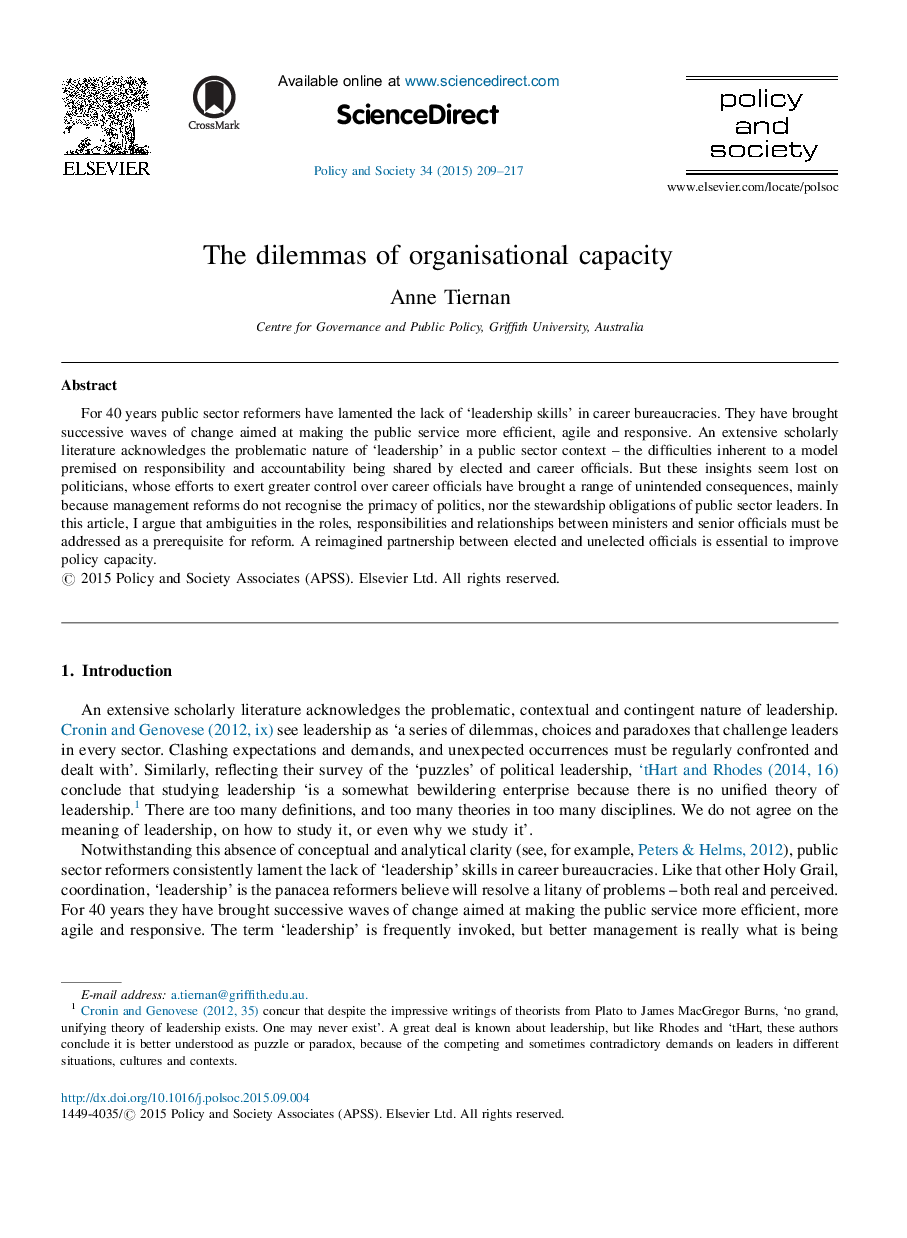| Article ID | Journal | Published Year | Pages | File Type |
|---|---|---|---|---|
| 1061480 | Policy and Society | 2015 | 9 Pages |
For 40 years public sector reformers have lamented the lack of ‘leadership skills’ in career bureaucracies. They have brought successive waves of change aimed at making the public service more efficient, agile and responsive. An extensive scholarly literature acknowledges the problematic nature of ‘leadership’ in a public sector context – the difficulties inherent to a model premised on responsibility and accountability being shared by elected and career officials. But these insights seem lost on politicians, whose efforts to exert greater control over career officials have brought a range of unintended consequences, mainly because management reforms do not recognise the primacy of politics, nor the stewardship obligations of public sector leaders. In this article, I argue that ambiguities in the roles, responsibilities and relationships between ministers and senior officials must be addressed as a prerequisite for reform. A reimagined partnership between elected and unelected officials is essential to improve policy capacity.
